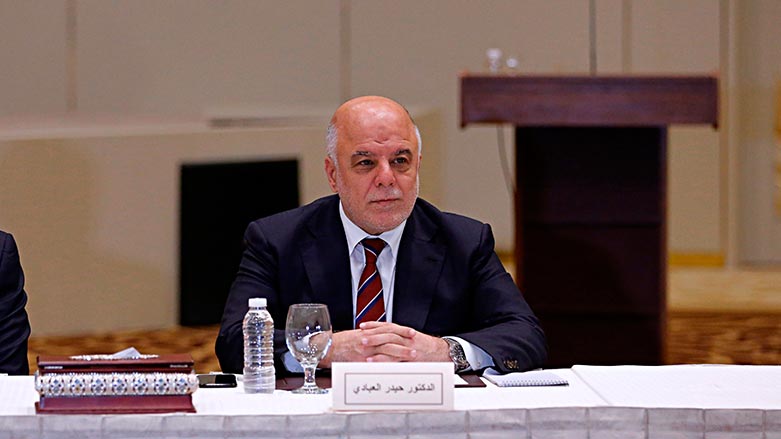The occupation of Kirkuk in 2017 was in coordination with Bafel Talabani: Haider al-Abadi
The former prime minister confirmed that the PUK maintains a strong relationship with the Islamic Republic of Iran.

ERBIL (Kurdistan 24) – The Former Iraqi Prime Minister Haider al-Abadi on Sunday in a televised interview with Al Forat discussed the takeover of Kirkuk on October 16, 2017, including the coordination between Qasem Soleimani, the commander of the Iranian Quds Force, and Bafel Talabani, the leader of the Patriotic Union of Kurdistan (PUK).
The former prime minister confirmed that the PUK maintains a strong relationship with the Islamic Republic of Iran.
Al-Abadi revealed that Qasem Soleimani visited Sulaimani a few days before October 16, to express his condolences to the Talabani family on the death of Jalal Talabani. He also met with PUK leaders.
"The fall of Kirkuk on October 16 was in coordination with Bafel Talabani," he noted, adding “we found out that this political party [PUK] did not want bloodshed, but there were other parties that were ready for war.”
He also stressed that he had good contacts with PUK forces and some of them trusted him more than their own leaders.
Until October 16, 2017, Kurdish Peshmerga forces were in control of the province’s security. Afterward, Iraqi forces backed by Iranian-affiliated militia forces ousted the Kurdish Peshmerga in a military campaign.
The then-Iraqi government launched the military attack in response to the Region’s referendum in 2017, where more than 90 percent voted in favor of independence.
As a result of the military takeover, thousands of civilians were temporarily displaced across the disputed territories between Erbil and Baghdad, while hundreds of properties belonging to Kurdish owners were vandalized.
The lack of security cooperation between Iraqi and Kurdish forces in the disputed territories has allowed for the resurgence of the so-called ISIS remnants, whose self-proclaimed caliphate was toppled seven years ago.